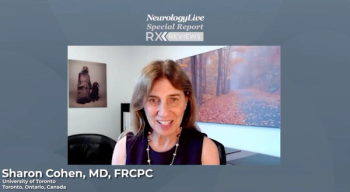
In this seventh episode, Cohen outlined emerging Alzheimer therapies targeting amyloid, tau, and inflammation, highlighting novel antibody approaches, genetic knockdown strategies, and repurposed GLP-1 receptor agonists. Supported by Eli Lilly.

In this seventh episode, Cohen outlined emerging Alzheimer therapies targeting amyloid, tau, and inflammation, highlighting novel antibody approaches, genetic knockdown strategies, and repurposed GLP-1 receptor agonists. Supported by Eli Lilly.

In this sixth episode, Cohen discussed aligning patient expectations with the goals of antiamyloid antibody treatment, emphasizing disease slowing, eligibility factors, and real-world satisfaction data. Supported by Eli Lilly.

In this fifth episode, Cohen explained the types, risks, and monitoring protocols for ARIA with antiamyloid antibodies, emphasizing MRI schedules, symptom vigilance, and individualized patient safety considerations. Supported by Eli Lilly.

In this fourth episode, Sharon Cohen, MD, FRCPC, talked about key differences between lecanemab and donanemab in terms of eligibility requirements to the receive the treatment. Supported by Eli Lilly.

The medical director of the Toronto Memory Program at the University of Toronto provided an in-depth overview of results from an ongoing phase 1 study assessing mivelsiran as a treatment for patients with early-stage Alzheimer disease. [WATCH TIME: 8 minutes]

The medical director of the Toronto Memory Program at the University of Toronto gave clinical perspective on the promise of mivelsiran, an investigational RNA interference therapeutic, and the idea behind using RNA therapies to treat Alzheimer disease. [WATCH TIME: 5 minutes]
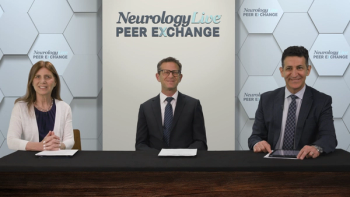
Sharon Cohen, MD, and Marwan Sabbagh, MD, share their final thoughts on Alzheimer's disease and offer advice on strategies to reduce the risk of developing AD and slow the progression of the disease for those already affected.

Key opinion leaders discuss the Alzheimer's disease pipeline and the numerous disease-modifying therapies under investigation.

Medical experts discuss the application of ApoE gene polymorphism and copy number data in managing Alzheimer's disease, highlighting its relevance for individuals with a family history of AD, and symptomatic patients.

Panelists review the use of CSF and blood-based biomarkers in Alzheimer's disease, discussing the role of tau as a marker of neuronal injury and its utility in staging the progression of Alzheimer's disease.

Key opinion leaders emphasize the significance of early diagnosis in Alzheimer's disease, as it allows patients to make autonomous decisions and access early treatment options, including potential participation in clinical trials.

Sharon Cohen, MD, and Marwan Sabbagh, MD, differentiate between the preclinical, prodromal, and dementia stages of Alzheimer's disease (AD), and highlight known risk factors, including the contribution of ApoE gene polymorphism and copy numbers.

Drs Atri, Cohen, Sabbagh and McDade share their enthusiasm and optimism about the future outlook for Alzheimer’s disease.

Dr Eric McDade shares information on different types of prevention trials to manage Alzheimer’s disease.

Expert neurologists share information on drugs with different mechanisms of actions that are being evaluated in clinical trials for Alzheimer’s disease.

Drs McDade and Atri discuss differences and similarities between other ongoing anti-amyloid antibody trials in Alzheimer’s disease.
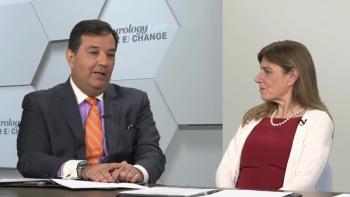
Drs Cohen, Atri, and Sabbagh share data on lecanemab, an anti-amyloid beta antibody, that was presented at CTAD 2022.

Dr Atri comments on observation of amyloid related imaging abnormalities (ARIA) seen with many Alzheimer’s disease treatments and shares his thoughts on management of ARIA.

Dr Atri discusses aducanumab, first FDA approved anti-amyloid-beta antibody for treatment of Alzheimer’s disease.

Drs McDade, Atri, Cohen, and Sabbagh discuss candidates drugs and various mechanisms of actions that are currently under evaluation for Alzheimer’s disease.

Dr Atri emphasizes importance of managing neuropsychiatric symptoms in patients with Alzheimer’s disease and drugs under development.

Dr Cohen shares current treatment options for Alzheimer’s disease and how she manages these patients in her practice.

Dr Atri discusses considerations and suggestions for caring for patients with Alzheimer’s disease.
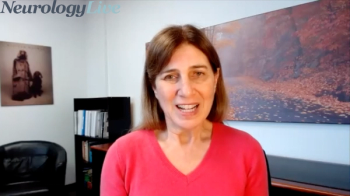
The behavioral neurologist and medical director of the Toronto Memory Program provided perspective on the steps the general public can take toward reducing the risk of Alzheimer disease and initiating treatment early when needed. [WATCH TIME: 4 minutes]

Dr. Cohen shares factors that may have contributed to the high failure rate of Alzheimer’s disease clinical trials thus far.

Drs McDade and Cohen discuss ATN (amyloid, tau, neurodegeneration) classification and its use in clinical practice to manage Alzheimer’s disease.

The behavioral neurologist and medical director of the Toronto Memory Program provided perspective on how lecanemab’s FDA approval changes the capabilities of treating Alzheimer disease in its earliest stages. [WATCH TIME: 3 minutes]
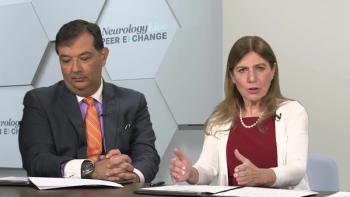
Dr Cohen emphasizes the importance of engagement of primary care physicians in identification of Alzheimer’s disease symptoms and pathology.
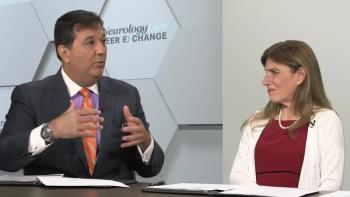
Dr. Atri discusses his approach to diagnosis and Dr. McDade updates on the use of tau-PET for diagnosis of Alzheimer’s disease.

Dr Atri shares his excitement about ongoing research and the use of biomarkers and imaging for management Alzheimer’s disease.

Published: January 5th 2023 | Updated:

Published: January 12th 2023 | Updated:

Published: February 16th 2023 | Updated:

Published: December 29th 2022 | Updated:

Published: December 22nd 2022 | Updated:

Published: December 22nd 2022 | Updated: